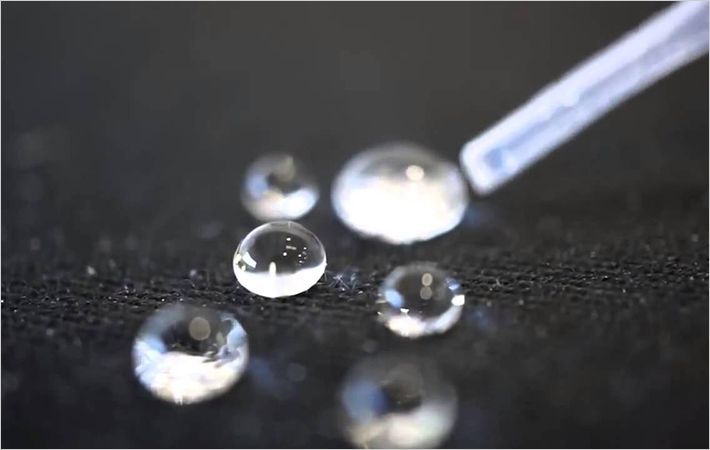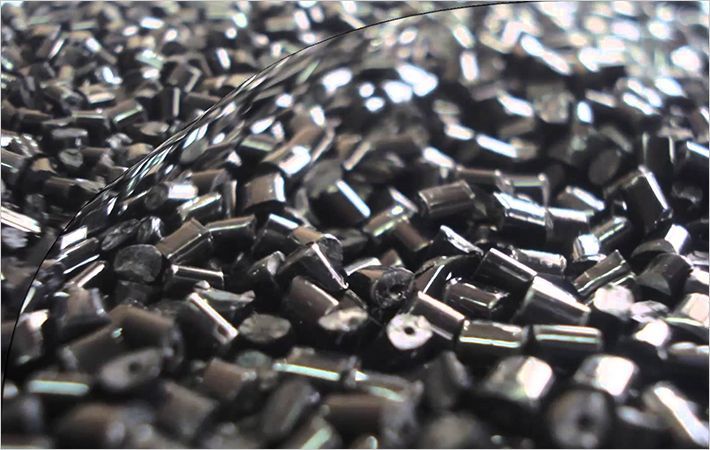Fibre-reinforced composites have been developed in close collaboration with fibre producers (carbon fibre, glass fibre, etc.), companies in the field of technical textiles (like TenCate), and the chemical industry (including synthetic resins). The combining of the various material components has resulted in composite materials with specific optimized characteristics. The first generation of materials (the thermoset composites) can onlyy be deformed during the final processing at the customer's premises. This usually involves a high labour cost component and relatively low processing speeds in industrial manufacturing processes, which is the main reason why such composite materials are rarely used in mass production.
Thermoplastic composites were developed - initially mainly for the aviation sector - to meet the requirements of industrial processing, especially as a replacement for aluminium (with a similar process for pressed parts). An additional aspect of this type of composite material is that material interconnections can be made relatively simply, thus enabling structural parts to be manufactured. The use of thermoplastic composites (such as TenCate Cetex) has consequently increased greatly in the aviation sector. Fibre-reinforced composites have been developed in close collaboration with fibre producers (carbon fibre, glass fibre, etc.), companies in the field of technical textiles (like TenCate), and the #
The Technical University of Delft, the Netherlands, and TenCate are the foremost pioneers of such materials for the aviation sector. In the Netherlands a strong industrial sector has developed around this innovative material development and its processing. This has also resulted in the establishment of TPRC (ThermoPlastic composite Research Center) and TAPAS (Thermoplastic Affordable Primary Aircraft Structure consortium).
Application of the knowledge available within the eTAC consortium can make a significant contribution to the current issues existing in the automotive sector. The demand for sustainable solutions has increased rapidly. In addition to the intrinsic technological advantages of the material, thermoplastic composites also satisfy recycling requirements.
TenCate Advanced Composites


